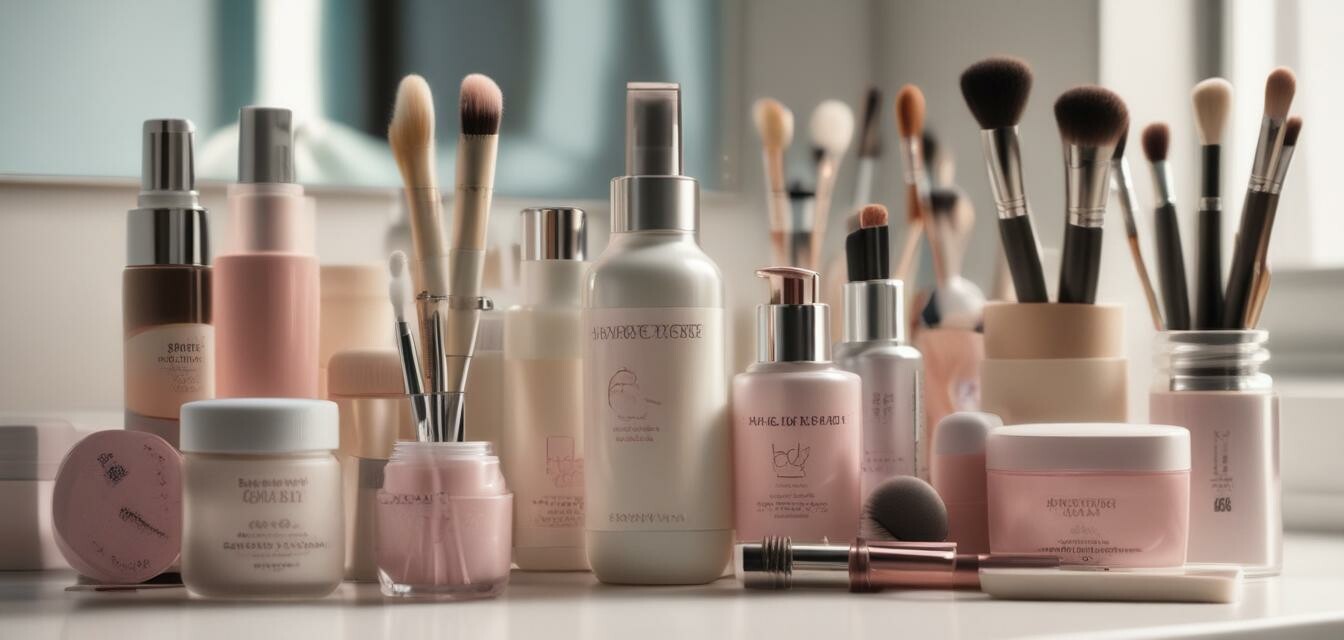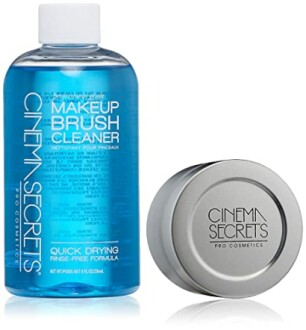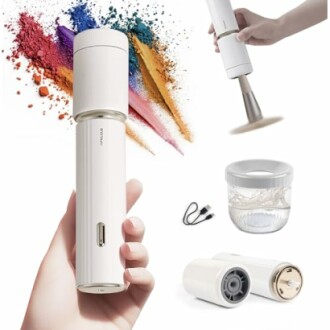
This article was generated using AI and is based on real customer reviews from the Amazon platform. It contains affiliate links, meaning we may earn a commission—at no extra cost to you. As Amazon Associates, we earn from qualifying purchases.
Ultimate Guide to Makeup Brush Cleaners
Key Takeaways
- Regular cleaning of makeup brushes prevents bacteria buildup, ensuring healthy skin.
- There are various types of cleaning solutions available, from liquid to electric cleaners.
- Using the right tools makes cleaning easy and efficient.
- Proper brush care can prolong the life of your beauty tools.
Makeup brushes are essential tools for achieving flawless beauty looks, but they also require proper hygiene to maintain their effectiveness and prolong their lifespan. Regular cleaning can prevent the buildup of bacteria, oil, and dirt, which can lead to breakouts and skin irritations. In this comprehensive guide, we will explore the top makeup brush cleaners available, detailing their benefits and providing comparisons to help you make informed decisions.
Why Is Cleaning Your Brushes Important?
Cleaning your makeup brushes regularly is essential for several reasons:
- Hygiene: Brushes can harbor bacteria and other contaminants, which can lead to skin issues.
- Performance: Clean brushes apply makeup more evenly and effectively.
- Longevity: Proper cleaning extends the life of your brushes.
Types of Makeup Brush Cleaners
Choosing the right makeup brush cleaner is crucial for your brush maintenance. Here are the most common types:
| Type | Description | Recommended For |
|---|---|---|
| Liquid Cleaners | Traditional cleaning solutions that require dipping brushes and rinse. | All brush types |
| Solid Cleaners | Bar soaps specifically formulated for makeup brushes. | All brush types |
| Electric Cleaners | Machine cleaners that automate the washing and drying process. | Busy individuals, anyone looking for convenience |
Top Recommendations for Makeup Brush Cleaners
Let’s take a look at some of the best makeup brush cleaners currently available.
Cinema Secrets Professional Makeup Brush Cleaner
A top-rated quick-clean solution that effectively removes makeup residue, ideal for all skin types.
Learn MoreComparison: Electric vs. Manual Cleaning
Understanding the differences between electric cleaners and traditional methods can help you choose the right tool for your needs. Here’s a brief comparison:
| Feature | Electric Cleaners | Manual Cleaners |
|---|---|---|
| Efficiency | High – cleans and dries quickly | Moderate – can take a long time, especially drying |
| Ease of Use | Very easy, minimal effort required | Requires some effort, more hands-on |
| Cost | Typically higher cost | Lower cost |
Electric Makeup Brush Cleaner & Dryer Machine
This upgraded machine cleans and dries brushes quickly, perfect for busy individuals.
Explore NowHow to Properly Clean Your Brushes
Here’s a step-by-step guide on cleaning your brushes effectively:
- Wet the bristles with lukewarm water.
- Apply your chosen cleaner to the bristles.
- Gently swish the brush in the cleaner or use an electric cleaner.
- Rinse the brush under running water until the water runs clear.
- Lay the brushes flat to dry.
Common Mistakes to Avoid
Avoid these common mistakes for effective brush cleaning:
- Using hot water, which can damage the bristles.
- Forgetting to clean your brushes regularly.
- Using excessive force when cleaning.
Pros
- Effective cleaning prevents skin issues.
- Prolongs the life of your brushes.
- Improves makeup application results.
Cons
- Electric cleaners can be pricier.
- Some products may not suit all brush types.
Final Thoughts
Investing in a quality makeup brush cleaner is essential for maintaining your beauty tools and ensuring a hygienic makeup application. Whether you opt for the convenience of an electric cleaner or a traditional liquid solution, regular maintenance will keep your brushes in top condition.
Explore More Resources
Want to learn more? Visit our resources section for detailed articles on understanding bacteria on beauty tools, frequency of cleaning various tools, and top products for tool sanitation.

